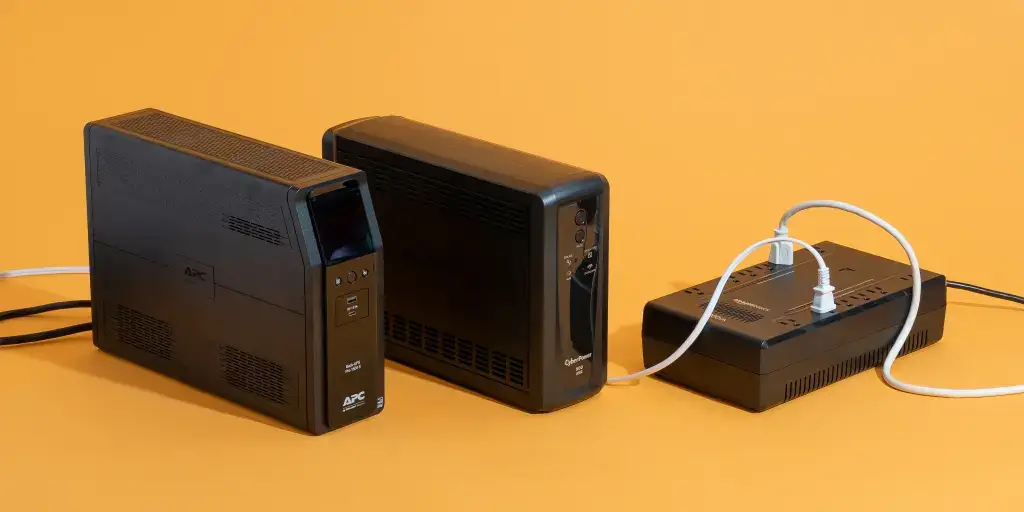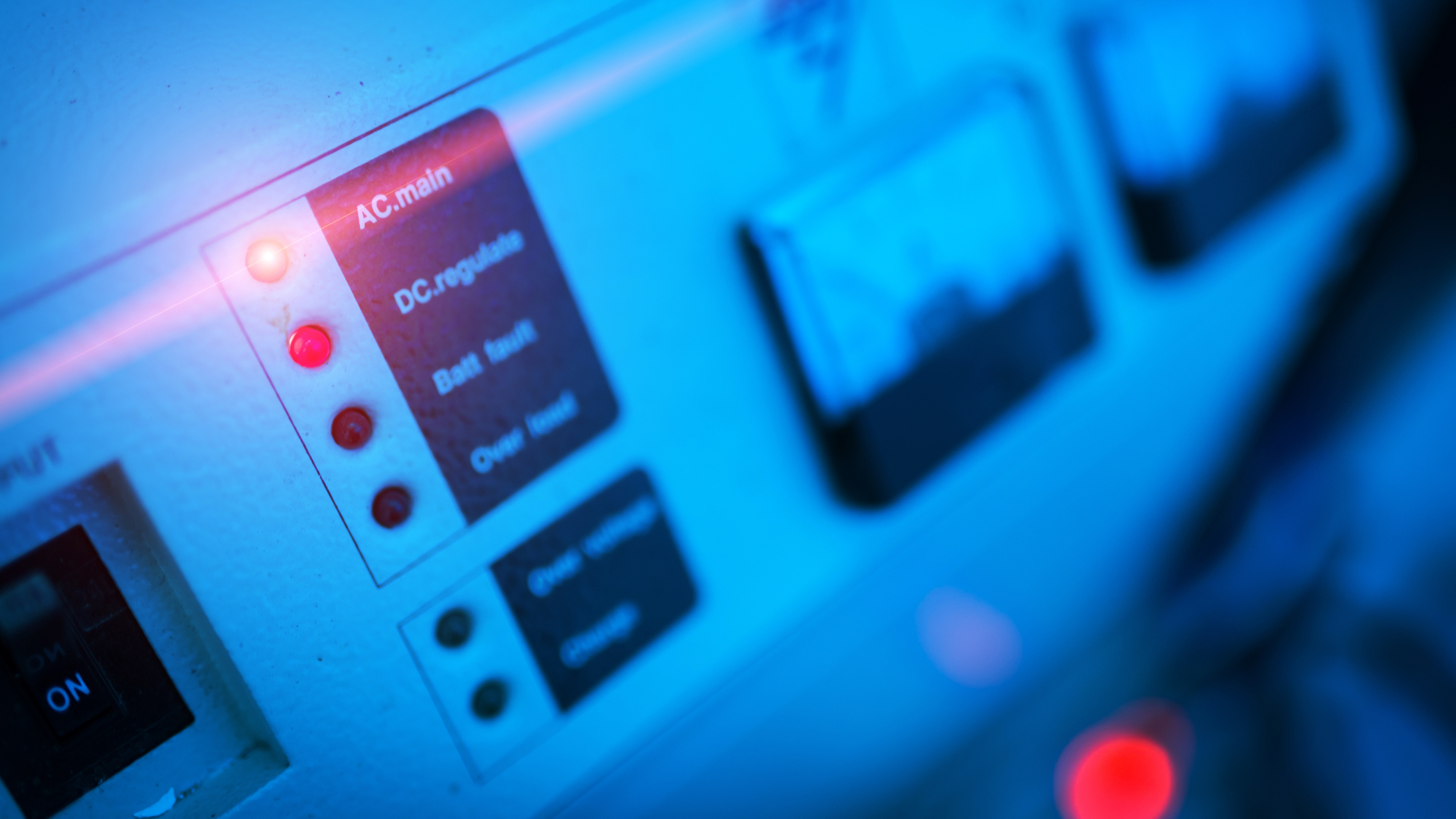Tech
How an Uninterruptible Power Supply Protects Against Power Outages

Power outages can wreak havoc on businesses and individuals, causing disruptions and financial losses. However, there is a reliable solution to combat these challenges: Uninterruptible Power Supply (UPS) systems. UPS systems act as a safety net during power outages, ensuring uninterrupted operations and protecting valuable equipment. In this article, we will delve into how UPS works and highlight its significance in safeguarding against power interruptions.
Uninterruptible Power Supply (UPS) systems are not limited to commercial or industrial applications; they are equally beneficial for home use. Whether you are running a home office, have sensitive electronics, or want to safeguard your appliances, investing in a UPS for home use is essential. During power outages, a UPS acts as a reliable backup power source, keeping your devices and equipment powered up.
With an uninterruptible power supply for home use, you can continue working, protect sensitive data, and prevent damage to electronic devices. In the following sections, we will explore the various aspects of UPS systems and discuss how they provide a dependable power backup solution for both businesses and homes.
How Uninterruptible Power Supply Works
Understanding how uninterruptible power supply (UPS) systems function and the different types available is essential for effectively protecting against power outages. UPS devices serve as a reliable backup power source, ensuring continuous electricity supply when the main power source fails. Let’s explore the key functions and various types of UPS systems:
Uninterruptible Power Supply Functions:
- Backup Power Source
A UPS acts as a backup power supply, offering protection during power outages or fluctuations. It prevents interruptions in electrical supply, ensuring the uninterrupted operation of connected devices.
- Battery
UPS systems incorporate batteries that store energy when the main power source is available. These batteries provide power during outages, keeping critical devices operational.
- Charger
The charger in a UPS is responsible for replenishing the battery’s energy when the main power source is restored. It ensures that the battery is ready for the next power interruption.
- Inverter
An inverter actuates the direct current (DC) power coming from the battery into alternating current (AC) power, which is compatible with the connected devices. This allows for seamless power delivery during outages.
- Automatic Transfer Switch
The automatic transfer switch senses when the main power source fails and automatically switches the power supply to the UPS battery. It ensures a smooth transition and prevents any disruption to the connected devices.
Types of Uninterruptible Power Supply:
- Offline/Standby UPS
This type of UPS remains inactive until a power interruption occurs. When an outage is detected, the UPS quickly switches to battery power. It offers basic protection and is suitable for non-critical devices.
- Line-Interactive UPS
Line-interactive UPS systems incorporate automatic voltage regulation (AVR) to stabilize minor voltage fluctuations. They provide better protection for sensitive equipment and are commonly used in home offices and small businesses.
- Online/Double-Conversion UPS
Online UPS systems ensure the highest level of protection. They constantly power connected devices using the battery, while the main power source keeps the battery charged. This design eliminates any power fluctuations, ensuring a clean and stable power supply.
Understanding the functions and types of UPS systems enables individuals and businesses to choose the most suitable solution for their power backup needs.
Benefits of Uninterruptible Power Supply
When it comes to protecting critical equipment and ensuring uninterrupted productivity, investing in the best uninterruptible power supply (UPS) is crucial. UPS systems offer a reliable backup power solution that safeguards against power disturbances and minimizes the risks of data loss and financial setbacks. In this section, we will explore the key functions of an uninterruptible power supply and delve into the benefits it provides for businesses and individuals.
- Protection of Critical Equipment
UPS systems shield sensitive equipment, such as servers, network devices, and telecommunications equipment, from power disturbances. By providing clean and stable power, UPS prevents damage caused by voltage spikes, surges, sags, or frequency fluctuations.
- Prevention of Data Loss
Power outages can lead to data corruption or loss, jeopardizing critical information and operations. UPS systems ensure uninterrupted power to servers and storage devices, allowing sufficient time for proper shutdown procedures, data backup, and protection against data loss or corruption.
- Ensuring Uninterrupted Productivity
Power disruptions can halt productivity and disrupt workflow, resulting in financial losses. With a UPS in place, businesses can continue operating during outages, minimizing downtime, and maintaining productivity. This is particularly crucial for industries that rely heavily on technology, such as finance, e-commerce, and telecommunications.
- Avoiding Financial Losses
Power outages can have severe financial implications. For instance, online businesses may experience revenue losses due to website downtime. UPS systems mitigate these risks by providing backup power, safeguarding revenue streams, and preventing losses associated with equipment damage, data loss, and operational disruptions.
Key Features to Consider in Uninterruptible Power Supply
When selecting a UPS system, several essential features should be taken into account:
- Power Capacity and Runtime
Assess the power requirements of your devices and choose a UPS with an adequate power capacity and runtime to support them during outages.
- Surge Protection and Voltage Regulation
Look for UPS systems that offer robust surge protection and voltage regulation capabilities to shield connected equipment from power fluctuations and surges.
- Battery Management and Monitoring
Opt for a UPS that includes advanced battery management features, such as automatic battery testing, monitoring, and notifications, to ensure optimal battery performance and timely replacement.
- Scalability and Expandability
Consider future growth and scalability need when selecting a UPS. Look for systems that allow easy expansion, such as adding additional battery modules or increasing capacity.
Industries and Applications of Uninterruptible Power Supply
UPS systems find applications across various industries and setups, including:
- Data Centers and IT Infrastructure
UPS systems are crucial for data centers and IT infrastructure to maintain uninterrupted operations, protect valuable data, and ensure business continuity.
- Hospitals and Healthcare Facilities
Medical facilities rely on UPS to power critical equipment, medical devices, and patient data systems, ensuring uninterrupted care and patient safety.
- Manufacturing and Industrial Operations
UPS systems are essential for manufacturing and industrial processes, protecting equipment, preventing production losses, and maintaining quality control.
- Home and Small Office Setups
Even in residential or small office environments, a UPS can safeguard computers, routers, modems, and other essential devices during power outages, allowing uninterrupted work or preventing data loss.
Factors to Consider When Choosing an Uninterruptible Power Supply
When it comes to selecting the right UPS uninterruptible power supply for your needs, several crucial factors should be taken into account. Understanding these considerations will not only ensure that you make an informed decision but also help you find a UPS system that provides reliable power protection without breaking the bank. In this section, we will explore the key factors to consider, including load requirements, redundancy, scalability, and budget considerations, when choosing an uninterruptible power supply.
When selecting a UPS system, consider the following factors:
- Load Requirements and Power Demands
Evaluate the power needs of your equipment to choose a UPS that can handle the load and demands adequately.
- Redundancy and Fault Tolerance
Look for UPS systems that offer redundancy and fault tolerance features to minimize the risk of failure during critical situations.
- Scalability and Future Expansion
Plan for future growth by selecting a UPS that can accommodate expanding power requirements without significant infrastructure changes.
- Budget and Cost Considerations
Consider your budget and cost constraints while ensuring that the UPS system meets your power protection needs effectively.
Installation and Maintenance of Uninterruptible Power Supply
Proper installation, regular maintenance, and diligent monitoring are critical for ensuring the optimal performance of your Uninterruptible Power Supply (UPS) system. Whether you are using a UPS for your PC or relying on an APC uninterruptible power supply, following these guidelines will help you maximize its reliability and effectiveness. In this section, we will outline key installation and maintenance practices for your UPS to ensure its readiness and functionality when power outages strike.
Installation and Maintenance of Uninterruptible Power Supply:
- Proper Installation Guidelines
Follow manufacturer guidelines or consult professionals for correct UPS installation, ensuring proper grounding and adequate ventilation.
- Regular Maintenance and Battery Replacement
Conduct routine maintenance, including periodic battery checks, cleaning, and firmware updates. Replace batteries as recommended by the manufacturer to maintain UPS reliability.
- Monitoring and Testing Procedures
Implement monitoring systems to track UPS performance and battery health and conduct periodic testing to verify its readiness during an actual power outage.
Protect Your Power with an Uninterruptible Power Supply (UPS)
Investing in an Uninterruptible Power Supply (UPS) is a crucial step in safeguarding your operations against power outages.
Evaluate your specific power protection needs and explore the key features offered by UPS systems. Choose a reliable UPS that aligns with your requirements and provides the necessary backup power for your critical devices. By investing in a robust UPS, you can gain peace of mind, enhance operational resilience, and keep your business running smoothly, even during power outages.
To find the best uninterruptible power supply for your needs, visit Schneider Electric’s website at www.se.com/th/en/. They offer a wide range of UPS systems designed to meet diverse power protection requirements. Take the first step towards uninterrupted power and ensure the continuity of your operations.
Don’t wait for the next power outage to strike. Invest in an Uninterruptible Power Supply (UPS) today and secure the reliability and stability of your electrical infrastructure.


































